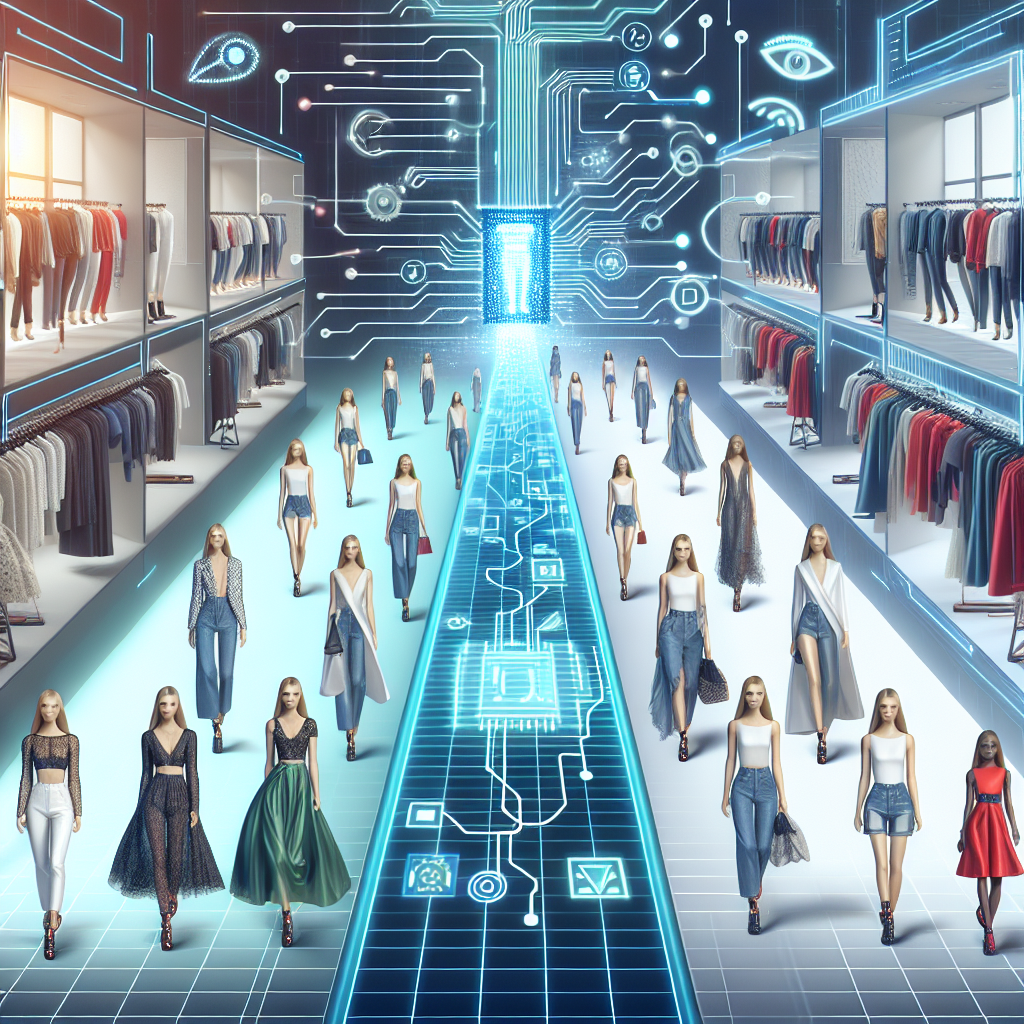From Runway to Retail: How AI is Streamlining the Fashion Supply Chain
The fashion industry is a fast-paced and ever-changing landscape, with trends coming and going at lightning speed. In order to keep up with consumer demand and stay ahead of the competition, fashion brands and retailers must have a streamlined and efficient supply chain. With the advent of artificial intelligence (AI), the fashion industry is undergoing a digital transformation that is revolutionizing the way products are designed, produced, and brought to market.
AI technology is being used to streamline the fashion supply chain in a variety of ways, from predicting trends and optimizing inventory levels to improving production processes and enhancing the customer shopping experience. By harnessing the power of AI, fashion brands and retailers are able to make faster, more informed decisions that ultimately lead to increased sales and profitability.
One of the key ways in which AI is streamlining the fashion supply chain is through trend forecasting. By analyzing vast amounts of data from social media, online searches, and other sources, AI algorithms can predict which colors, styles, and silhouettes will be popular in the upcoming season. This allows fashion brands to design their collections accordingly and ensure that they are offering products that will resonate with consumers.
AI is also being used to optimize inventory levels and reduce waste in the supply chain. By analyzing sales data and other factors, AI algorithms can predict demand for specific products and help brands and retailers to better manage their stock levels. This not only helps to reduce the risk of overstocking or understocking, but also minimizes the amount of unsold inventory that ends up in landfills.
In addition to improving forecasting and inventory management, AI is also being used to enhance the production process in the fashion industry. By utilizing computer vision technology, AI algorithms can analyze images of garments and provide feedback on fit, quality, and other factors. This allows designers and manufacturers to make adjustments to their designs before they go into production, saving time and money in the long run.
AI is also being used to improve the customer shopping experience, both online and in-store. By analyzing customer data and behavior, AI algorithms can personalize product recommendations and offer targeted promotions to individual shoppers. This not only helps to increase sales, but also fosters customer loyalty and satisfaction.
Overall, AI is revolutionizing the fashion supply chain by enabling brands and retailers to make smarter, more data-driven decisions that lead to increased efficiency and profitability. By harnessing the power of AI technology, fashion companies can stay ahead of the competition and meet the ever-changing demands of consumers in today’s fast-paced marketplace.
FAQs
Q: How is AI being used in trend forecasting in the fashion industry?
A: AI algorithms analyze vast amounts of data from social media, online searches, and other sources to predict which colors, styles, and silhouettes will be popular in the upcoming season. This helps fashion brands to design their collections accordingly and offer products that will resonate with consumers.
Q: How does AI optimize inventory levels in the fashion supply chain?
A: AI algorithms analyze sales data and other factors to predict demand for specific products and help brands and retailers to better manage their stock levels. This reduces the risk of overstocking or understocking and minimizes unsold inventory.
Q: How does AI enhance the production process in the fashion industry?
A: AI utilizes computer vision technology to analyze images of garments and provide feedback on fit, quality, and other factors. This allows designers and manufacturers to make adjustments to their designs before they go into production, saving time and money.
Q: How does AI improve the customer shopping experience in the fashion industry?
A: AI analyzes customer data and behavior to personalize product recommendations and offer targeted promotions to individual shoppers. This increases sales, fosters customer loyalty, and enhances the overall shopping experience.
In conclusion, AI is playing a crucial role in streamlining the fashion supply chain and revolutionizing the way products are designed, produced, and brought to market. By harnessing the power of AI technology, fashion brands and retailers can make faster, more informed decisions that ultimately lead to increased efficiency and profitability in today’s fast-paced and competitive marketplace.

